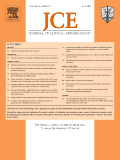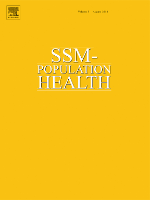
PUBLIC HEALTH REVIEWS
Scope & Guideline
Unlocking Insights in Public Health for Global Impact
Introduction
Aims and Scopes
- Public Health Research Methodologies:
The journal focuses on various research methodologies, including systematic reviews, scoping reviews, and meta-analyses, to synthesize existing literature and provide evidence-based conclusions in public health. - Health Policy and Governance:
There is a strong emphasis on health policy analysis and governance, examining the effectiveness of public health policies, health impact assessments, and decision-making processes during health crises. - Environmental and Social Determinants of Health:
The journal consistently addresses the interplay between environmental factors—such as climate change, pollution, and urban settings—and their impact on community health outcomes. - Health Interventions and Innovations:
PUBLIC HEALTH REVIEWS explores innovative health interventions, including digital health solutions and community-based programs, aimed at improving health service delivery and patient outcomes. - Public Health Education and Workforce Development:
The journal also highlights the importance of education and training in public health, discussing the development of curricula, leadership programs, and workforce competencies.
Trending and Emerging
- Impact of Climate Change on Health:
Recent articles have increasingly focused on the relationship between climate change, environmental factors, and health outcomes, showcasing the urgency to address climate-related health risks. - Digital Health Innovations:
There is a growing emphasis on the role of digital health technologies, including telehealth and mobile health interventions, in enhancing healthcare delivery and patient engagement, particularly in the context of ongoing health crises. - Mental Health and Wellbeing:
Emerging themes related to mental health, especially in the context of the COVID-19 pandemic and its aftermath, demonstrate a rising concern for mental health issues among various populations, including students and healthcare workers. - Community Health Engagement:
The trend toward community-based interventions is evident, with a focus on participatory approaches that empower communities to address their health challenges collaboratively. - Interdisciplinary Approaches to Health:
There is an increasing recognition of the importance of interdisciplinary research that integrates insights from various fields, such as sociology, psychology, and environmental science, to tackle complex public health issues.
Declining or Waning
- Traditional Epidemiological Studies:
While epidemiological research remains important, there has been a noticeable decline in traditional epidemiological studies that do not integrate social determinants or innovative methodologies, as the focus shifts towards more comprehensive and interdisciplinary approaches. - Narrowly Defined Health Issues:
Specific health issues that were once the sole focus of research, such as isolated chronic diseases, are receiving less attention. The journal is now more inclined towards broader themes that encompass multifactorial health determinants. - Static Health Education Models:
There is a waning interest in static models of health education that do not incorporate interactive or community-based learning strategies, as the field moves towards more dynamic and participatory approaches.
Similar Journals

JOURNAL OF CLINICAL EPIDEMIOLOGY
Advancing knowledge in clinical epidemiology.JOURNAL OF CLINICAL EPIDEMIOLOGY, published by Elsevier Science Inc, stands as a prominent voice in the field of epidemiology, providing vital insights into public health and clinical practice since its inception in 1988. With an impressive impact factor placing it in the Q1 category of Epidemiology and a Scopus ranking of #16/148, this journal reflects a commitment to excellence and relevance, boasting a high percentile rank of 89th. The journal encompasses a broad spectrum of research topics within clinical epidemiology, making it an essential resource for researchers, health professionals, and students looking to deepen their understanding of disease patterns, risk factors, and health interventions. Although it currently does not offer open access options, its rigorous peer-review process ensures that published articles maintain a high standard of scholarly integrity. With its headquarters in New York, the journal continues to push the boundaries of knowledge in epidemiology, shaping policy and practice to improve public health outcomes globally.

JBI Evidence Synthesis
Advancing evidence-based nursing practices for better patient outcomes.JBI Evidence Synthesis is a premier peer-reviewed journal published by Lippincott Williams & Wilkins, dedicated to advancing the field of evidence-based practice in nursing. With an impressive Q1 ranking in the 2023 category of Nursing (Miscellaneous) and holding the rank of #25 out of 139 in General Nursing according to Scopus, this journal serves as a key resource for researchers, practitioners, and students alike. Its focus on synthesizing high-quality research evidence allows for the integration of best practices into clinical settings, thereby enhancing patient care and health outcomes. Since its inception, JBI Evidence Synthesis has been committed to promoting rigorous methodologies and innovative approaches in evidence synthesis, making it an essential publication for anyone seeking to contribute to the advancement of nursing and healthcare. The journal is available in both print and online formats, ensuring wide accessibility to critical knowledge in the field.

JOURNAL OF ENVIRONMENTAL HEALTH
Advancing the Science of Environmental HealthJOURNAL OF ENVIRONMENTAL HEALTH is a pivotal academic journal published by the NATIONAL ENVIRONMENTAL HEALTH ASSOCIATION, focusing on the multidisciplinary field of environmental health, toxicology, public health, and policy. Since its inception in 1973, the journal has provided a platform for innovative research, reviews, and case studies that address pressing environmental health issues, making it a valuable resource for researchers, professionals, and students alike. With its convergence set to continue until 2024, the journal plays a critical role in disseminating findings that influence policy and practice in environmental health. Although categorized in the fourth quartile in various health and environmental science rankings, it remains dedicated to promoting significant scholarship and advancing our understanding of environmental factors that impact human health. The journal is available exclusively through subscription, offering access to high-quality content that is essential for staying informed about developments in this dynamic field.

Enfermeria Clinica
Bridging research and practice for enhanced patient care.Enfermeria Clinica is a distinguished journal published by Elsevier España SLU, dedicated to advancing the field of nursing through robust scholarly research and clinical practice. With an ISSN of 1130-8621 and E-ISSN of 1579-2013, this esteemed journal serves as a vital resource for nurses, healthcare professionals, and researchers. Operating from Spain, it has established a reputation for excellence, notably achieving Q3 ranking in the categories of Fundamentals and Skills, Nursing (miscellaneous), and Research and Theory in 2023, indicating a solid influence within the academic community. The journal is devoted to disseminating innovative research that informs nursing practices and improves patient care. Although it operates on a subscription basis, the insights and findings published in Enfermeria Clinica are invaluable for those looking to enhance their knowledge in nursing evidenced-based practice. The journal’s commitment to bridging research with real-world application makes it an essential tool for both emerging and established professionals in the nursing field.

INTERNATIONAL ARCHIVES OF OCCUPATIONAL AND ENVIRONMENTAL HEALTH
Transforming Knowledge into Action for Better HealthINTERNATIONAL ARCHIVES OF OCCUPATIONAL AND ENVIRONMENTAL HEALTH is a prestigious journal published by Springer that serves as a vital resource in the field of public health and occupational safety. With its ISSN 0340-0131 and E-ISSN 1432-1246, this journal has been a cornerstone for researchers and professionals since its inception in 1975, converging knowledge and insights to enhance health practices and policies. Rated in the top Q1 category for both Public Health and Environmental and Occupational Health as of 2023, it currently ranks 154 out of 665 in Scopus, placing it in the 76th percentile, underscoring its significant impact within the scientific community. Although the journal does not offer open access, it provides invaluable content covering various aspects of environmental health, occupational safety, and epidemiological studies, making it a must-read for anyone vested in improving health outcomes across diverse populations. Located in Germany with an office at One New York Plaza, Suite 4600, New York, NY 10004, United States, the journal is committed to advancing knowledge and fostering collaboration among its readership.

International Journal of Preventive Medicine
Elevating public health knowledge for a better future.International Journal of Preventive Medicine is a premier peer-reviewed journal published by Wolters Kluwer Medknow Publications, focusing on innovative research and advancements in the field of preventive medicine. Established in 2010 and embracing the Open Access model since 2011, the journal aims to disseminate high-quality studies that contribute to the understanding and prevention of disease, promoting public health and well-being. With its current ranking in the third quartile (Q3) for Public Health, Environmental and Occupational Health, and a Scopus ranking of #317 out of 665 in its category, the International Journal of Preventive Medicine serves as an essential resource for researchers, professionals, and students alike. Through a global perspective and interdisciplinary collaboration, the journal strives to address critical health challenges, making significant strides towards a healthier society. The journal is accessible online, featuring issues from 2010 to 2024, which allows a comprehensive exploration of preventive approaches and public health strategies.

Health Scope
Empowering professionals with cutting-edge research.Health Scope, an esteemed journal published by BRIEFLAND, serves as a critical platform for disseminating significant research within the field of health sciences. With its ISSN 2251-8959 and E-ISSN 2251-9513, the journal aims to provide a comprehensive overview of health-related studies, fostering interdisciplinary collaboration and innovation. Although the journal is not open access, it is dedicated to maintaining high academic standards and rigorous peer review processes to ensure the dissemination of quality research. Located at 25 Derde Morgen, Shertogenbosch, 5233 NL, Netherlands, Health Scope invites contributions that explore diverse facets of health, including public health, epidemiology, and healthcare management. Researchers, professionals, and students alike will find this journal to be an invaluable resource for advancing their knowledge and enhancing their practice in the ever-evolving landscape of health sciences.

Epidemiology and Health
Shaping the future of public health through rigorous research.Welcome to Epidemiology and Health, a premier open-access journal dedicated to advancing knowledge in the fields of epidemiology and public health. Published by the Korean Society of Epidemiology since 1979, this journal serves as a vital platform for researchers, professionals, and students alike, promoting innovative research and robust discussion surrounding public health issues. Based in South Korea, it boasts a commendable Q2 ranking in the categories of Epidemiology, Public Health, and Environmental and Occupational Health, reflecting its significant contribution to the scientific community. With its current impact factor ranking it favorably among peers—#124 out of 665 in Public Health and #40 out of 148 in Epidemiology—Epidemiology and Health continues to uphold its mission of disseminating high-quality, peer-reviewed research. The journal's commitment to open access ensures that vital epidemiological insights reach a broad audience, supporting the collective goal of improving global health outcomes. Engage with pioneering studies and emerging trends within these critical fields, as we work towards a healthier future.

BMJ Mental Health
Advancing mental health research for a brighter tomorrow.BMJ Mental Health, published by the esteemed BMJ PUBLISHING GROUP, is a pioneering open-access journal dedicated to advancing research and knowledge in the field of Psychiatry and Mental Health. Launched in 2023, this journal has rapidly established itself within the academic community, achieving a prestigious Q1 ranking and a ranking of #123 out of 567 in its category, placing it in the 78th percentile according to Scopus. With its base in the United Kingdom, the journal aims to foster impactful research through its commitment to accessibility, allowing professionals, researchers, and students alike to engage with high-quality content freely. The E-ISSN: 2755-9734 enables seamless digital access to cutting-edge studies, reviews, and perspectives that address the complexities of mental health, thereby paving the way for better practices and innovations in mental health care. Join a community of dedicated scholars and practitioners in reshaping the landscape of mental health research with BMJ Mental Health.

SSM-Population Health
Fostering knowledge sharing in population health.SSM-Population Health, published by ELSEVIER SCI LTD, stands as a prestigious platform dedicated to advancing our understanding of population health dynamics. As an Open Access journal since 2015, it fosters a culture of knowledge sharing, allowing researchers, professionals, and students to access high-quality research without barriers. With exceptional rankings in the 2023 category quartiles—Q1 in Health Policy, Health (social science), and Public Health, Environmental and Occupational Health—the journal emphasizes its influential role in shaping public health discourse and policy. Its notable Scopus rankings place it in the top deciles of various health-related fields, underlining its impact on contemporary health issues and research. SSM-Population Health invites contributors to address pressing questions and solutions within the realm of population health, making it a vital resource for those aiming to make an impact in this ever-evolving field.